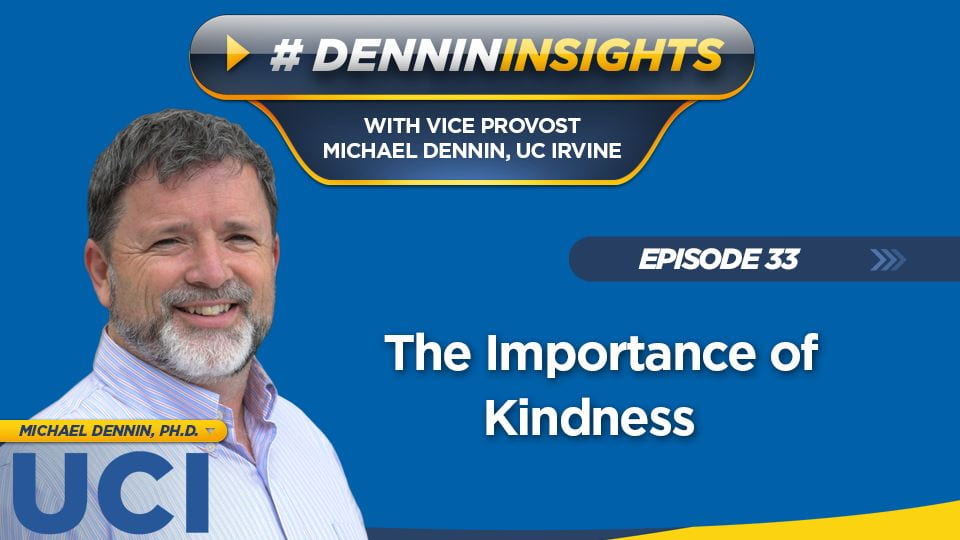As I thought about my first blog post of the fall quarter, I struggled with a concept I wanted to communicate. I finally landed on the idea of kindness, and I hope my post captures the sentiment I wish to express. The topic of kindness came to mind as I reflected on the interactions between instructor and student, and I realized that this relationship is conceptualized primarily in terms of dichotomies. Either a course is rigorous or it is not. Students are either prepared or they are not. Students are either taking the course for the “right” reasons (usually the purity of learning) or the “wrong” reasons (to fulfill a requirement or earn credit). The instructor cares about students or is out to get them. The instructor is “nice” or “too strict.”
Based on my conversations with both faculty and students, I can understand where these divisions come from. But at the same time, I often wonder if we lose sight of the fact that we are all people just trying to do our best.
This thought is what made me want to dedicate this post to discussing the importance of kindness. While many other words like empathy, respect, and understanding would all be appropriate in this context, I think there are special implications when it comes to treating each other with kindness. For me, kindness means putting people first and trying to see things from their perspective. I also think about kindness as being there to help others grow, face new challenges, and overcome obstacles. Kindness doesn’t necessarily mean “going easy” on people, as this can hurt them in the long run, but it does call for extending them the benefit of the doubt.
One thing I want to emphasize is that, in my general experience, UCI is a place where kindness has thrived. We often hear the phrase “UCI kindness.” At the same time, we are all coming out of a time of great stress and that combined with a very “confrontational” national vibe can put a core focus on kindness at risk. So, this post is more a call to double down on UCI’s history of kindness than an indictment of a lack of kindness at UCI. Given the national conversation, there are some specific areas at particular risk where I believe kindness is crucial, so I want to touch briefly on these examples.
One topic that gets a lot of press these days is whether universities are willing to challenge ideas or if people are too afraid of offending each other. This is a great example of where kindness matters. There is a difference between presenting and discussing ideas that are potentially offensive to some people and being offensive. One does not have to be a jerk to provide an academic experience that challenges people. Though I completely understand the importance of protecting academic freedom and free speech where appropriate, we should listen to what our students are saying and really consider our approaches. Here at UCI, we promote the Anteater Virtue of intellectual humility. For instructors, there are levels to practicing intellectual humility—it encourages us to reflect on our delivery of difficult topics and also asks us to instill in our students the humility to listen and process challenging ideas when they are presented.
Surprisingly, I’ve heard many people push back against the idea of approaching challenging ideas with kindness. A common rebuttal is: “But there are mean and offensive people everywhere. Our students need to learn how to deal with this.” While I agree that part of our job is to prepare our students for reality, I would also challenge us to be more creative when it comes to this responsibility. In raising my own kids, I take pride in having prepared them for a world where people can be mean and offensive and have given them a set of skills to deal with this fact. However, I did not have to be mean or offensive to them to achieve this. I feel the same way about our students, and I know that we are capable of preparing them for the real world without directly subjecting them to negative experiences and disrespect!
I also ask that students extend kindness to their instructors. Please remember that your professors are not actually out to get you. When something does not go your way or when a professor appears to disregard your request, keep in mind that we do care but there is a lot going on behind the scenes. Immediately jumping on the offensive is generally not effective in the long run and is certainly not acting out of kindness. Having some trust in us and approaching us from a place of intellectual humility (as I have challenged faculty to consider when approaching you) will go a long way in improving your academic journey.
Despite my general call for kindness, I acknowledge that there are real cases of abuse and bad behavior that need to be addressed. There are also ongoing microaggressions that students, faculty, and staff face on a daily basis that must be eliminated. A line must be drawn against injustice and prejudice, and as I write this from a place of privilege, I do not want to understate the severity of these issues.
In acknowledging that, I firmly believe that we would all benefit from and enjoy more kindness in our lives. Showing kindness towards each other will help us thrive in the places that are the most challenging. Kindness gives us the ability to consider difficult ideas without being immediately biased by personal opinion, and it helps us present our own thoughts in a way that is sensitive to others. Kindness underpins many of UCI’s guiding tenets, and it preserves our commitment to creating safe learning environments while maintaining academic freedom.

Thank you for this important and timely message.
Kindness goes a long way in building relationships and helping us overcome challenges.